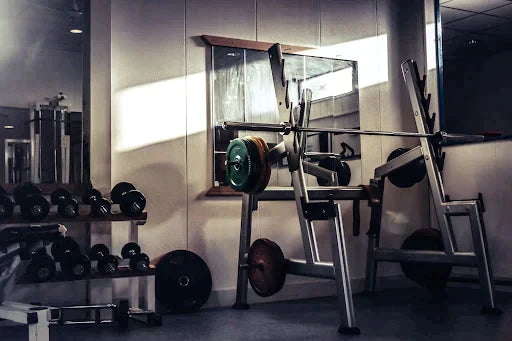
Creatine, widely popular in the gym community, has a growing number of studies and research to back up the claims of its benefits. Even so, there are many myths about the supplement, causing some people to stray away, which only prevents them from maximizing their health and strength. Let’s dive into some of the most common misconceptions about creatine and why they are false.
MYTH: Creatine is Some Type of Anabolic Steroid
Though creatine gets most of its recognition from the bodybuilding community and athletes, its molecular structure is in no way similar to steroids. Creatine is a molecule made up of amino acids that is naturally synthesized in the body and is present in all cells. It’s an organic compound that boosts the production of ATP, fueling your cells and muscles for any kind of demanding activity – from physical workouts to cognitive challenges to supporting your immune system.
MYTH: All Creatine Causes You to Retain Excess Water
Many athletes or gym goers who use creatine fear that creatine supplementation will cause their body to hold on to extra water – therefore impacting their muscle definition and overall weight. Only older, less effective forms of creatine with low bioavailability will cause the body to have undesirable, extracellular fluid retention. More specifically, forms of creatine that are so inefficient that you must take a significantly larger dose are more likely to cause water retention.
CON-CRĒT® Patented Creatine HCl is the #1 bioavailable creatine and has a 70% greater plasma uptake than standard forms of creatine. It has at least 59 times greater solubility, therefore it dissolves much more efficiently in fluids and is easily absorbed by the muscles. This means it can be taken in much smaller doses while achieving the same benefits, find out how much creatine you should actually take.

MYTH: Creatine is Only Effective with a Loading Phase
In the past, many bodybuilders and athletes would implement a loading phase when taking creatine to "saturate" their bodies and then cycle on and off their creatine doses to try and maximize gains. However, as mentioned above, consuming excessive doses of creatine is not advantageous and can have significant negative side effects.
Because CON-CRĒT® Creatine HCl is concentrated creatine and has far superior uptake to other forms of creatine, there is never a need to load or cycle the product. CON-CRĒT, unlike any other creatine on the market, is dosed based on body weight, otherwise known as Micro-Dosing®. This equates to just 750 mg of CON-CRĒT® per 100 lbs. of body weight. You receive superior results from smaller doses with no negative side effects.
MYTH: Only Athletes and Bodybuilders Will Benefit from Creatine
Creatine doesn’t just help you build muscle. It is a key player in providing every cell in our body with the energy they need to function. It does this by catalyzing the production of ATP – our body’s main energy source – providing all of the cells in the body with the power they need to fuel and do their jobs optimally.
For this reason, creatine helps to improve overall health – from immunity to sexual wellness to brain health and even heart health (it is our most important muscle, afterall). Not only can CON-CRĒT® Creatine HCl help to improve your health as it stands currently, but it is also a wonderful maintenance supplement. Studies have shown creatine to help promote cardiac health, neurological health, and fertility health. Anyone looking to improve their overall health can benefit from creatine.
MYTH: Creatine Will Upset the Gastrointestinal System
While the larger doses of older forms of creatine can cause gastric upset, when CON-CRET® is taken in the recommended amount, it will not bother the stomach. CON-CRĒT® Creatine HCl in particular, is extremely bioavailable and highly soluble. This means that our powder supplements dissolve easily in liquids which helps to increase plasma uptake and the capsules dissolve easily in the stomach. This also makes it easier for our systems to process it, helping to eliminate any possible bloating, diarrhea, or other gastrointestinal discomfort.

MYTH: It’s Easy to Get Enough Creatine From Foods
The body only produces enough creatine to fulfill approximately half of the body’s daily required amount. Though creatine can be found in food sources like red meat, you would have to consume a significantly large portion to meet the required amount of creatine that the body needs. Because creatine is found in meat and seafood, this also prevents vegetarians and vegans from increasing their creatine uptake through food. Regardless of your dietary restrictions or preferences, supplementing with creatine is the most effective way to meet your daily requirements of creatine. Don't like taking Creatine Powder? Try our new Creatine Gummies.
Choose a Supplement That Works for You
When you find a creatine supplement that works well for you and that is easy to take on a regular basis, you’ll be able to maximize your results. Aside from what the myths may lead you to believe, creatine does not cause gastrointestinal upset, water retention, and it is certainly far from an anabolic steroid. Not only is it naturally found in the body, but it is required to carry out the cell's basic functions. It can also help you sustain high energy exercises like endurance or strength training.
Whether you want to build muscle or want to improve your health in general, choosing a quality form of creatine such as Creatine HCl can help you maximize your gains without any of the unpleasant drawbacks. CON-CRĒT® Creatine HCl, is domestically produced, backed by 8 U.S. patents, and is more effective in smaller doses when compared with other forms of creatine. Start training harder and living healthier by browsing our products today!
